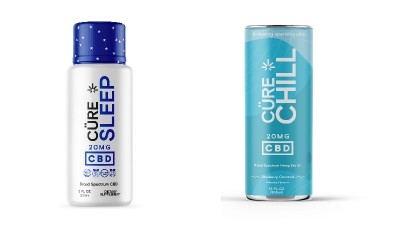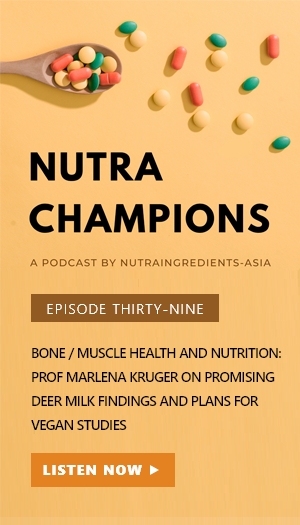Regulations and policies: Our 10 most-read health and nutrition regulatory stories of 2023 unveiled

‘Not so dire?’ China NMN supplier hopeful of US opportunities despite regulatory roadblock
A Shanghai-based nicotinamide mononucleotide (NMN) ingredient firm said it was hopeful of NMN’s application and business opportunities in the US, despite news of the USFDA retracting the ingredient’s status as a New Dietary Ingredient (NDI) in late 2022.
The ingredient is a form of vitamin B3 and is commonly marketed as an anti-ageing ingredient. It was approved as an NDI in the US on a case-by-case basis and has been sold as a dietary supplement in the US market.
However, the USFDA changed its position on the ingredient’s use in dietary supplements after it found out that NMN has been authorised for investigation as a new drug.
Advertising impact: South Korea intends to ban terms ‘CBD’ and ‘THC’ on hemp seed oil
South Korea’s food and drug regulator said it planned to ban the use of the terms ‘CBD’ and ‘THC’ on hemp food products, including hemp seed oil supplements.
The two terms stand for cannabidiol and tetrahydrocannabinol respectively – which are categorised as narcotic ingredients in South Korea, although CBD is also recognised for treating epilepsy.
The Ministry of Food and Drug Safety (MFDS) said it wanted to ban the use of these two terms to stem the problem of deceptive product advertising, citing problematic examples such as “CBD high content” and “CBD 0000mg”.
Market consolidation? Only major domestic brands and MNCs to thrive in China’s tougher infant formula market – experts
A more stringent regulatory environment, negative population growth, and an under-performing economy were cited as reasons for why only the major domestic companies and MNCs would thrive in China’s infant formula market.
China enforced new national standards (Guobiao / GB) for infant formulas on February 22, after the standards were first introduced two years ago.
The new standards required manufacturers to reformulate their products in the areas of calories, carbohydrates, proteins, and micronutrients content. For example, upper limits were introduced for micronutrients including vitamin E, vitamin K1 and B1.
Thailand to drive exports of Andrographis, turmeric, black ginger to neighbouring SEA markets
The Thai government said it would ramp up the export of Andrographis, turmeric, and Thai black ginger into the neighbouring South East Asian markets for use in both herbal medicines and topical applications.
Speaking to NutraIngredients-Asia, Dr. Khwanchai Visithanon, Deputy Director-General, the Department of Thai Traditional and Alternative Medicine (DTAM), said that those were termed as the ‘Herbal Champions’ of year 2023 to 2027.
They were selected based on three criteria, namely 1) the extent to which the herbs was used 2) the amount of knowledge that was available regarding their use, and 3) their potential use in both domestic and overseas markets.
“Imported raw ingredients” and similar terms banned in China’s infant formula product labelling from Oct 1
The Chinese authorities have imposed stricter rules on the infant formula industry, with terms such as “imported raw ingredients” and “imported milk source” banned on all product labelling since October 1, 2023.
Stricter requirements on product registration, on-site inspection, and product labelling have been implemented.
For instance, the State Administration of Market Regulation (SAMR) has decided that terms such as “imported milk source”, “originating from overseas farms”, “imported raw ingredients”, “non-polluted milk source” and other “unclear” messaging will be banned on the product labelling.
NPD opportunities: Palm oil tocotrienol approved to make cognitive health, antioxidant claims in Malaysia
Malaysia’s Ministry of Health has approved two health claims for products that contain a specific dosage of palm oil tocotrienol, namely those that related to cognitive health and antioxidant effects.
Based on the ministry’s announcement, food and supplements containing palm tocotrienol-rich fraction, also known as palm TRF or palm tocotrienols / tocopherol complex, have been allowed to claim “TRF may help to improve cognitive function” and “TRF is an antioxidant and may help to reduce oxidative stress”.
The claims could be applied to food and beverage, as well as dietary supplements, such as those that come in the form of tablets and capsules.
Major opportunity: China set to approve new function claims for health foods, BYHEALTH first to submit application
New function claims for health foods could be expected in China after the authorities have introduced a list of technical guidelines to help companies and individuals make their submissions.
Part of a pilot program that was effective since August 28, 2023, China health foods giant BYHEALTH was said to be the first to have made the submissions for new function claims.
Under the pilot program, a new function claim should fall within the following three categories: namely 1) to supplement dietary nutrient, 2) to maintain or improve the body’s health status, or 3) to reduce the risk factors of disease onset.
Fortified future? China set for mass fortification of staple foods to combat deficiencies – consultation open
China said it was considering making mass nutritional fortification for various staple foods compulsory, in order to boost public health and combat nutrient deficiencies.
The China National Centre for Food Safety Risk Assessment (CFSA) has outlined a detailed proposal to mandate the nutritional fortification of a wide variety of staple foods in the country, including food groups such as dairy, rice, wheat flour, and vegetable oil.
For instance, it would be compulsory to fortify pasteurised dairy or fermented dairy products with vitamins A and D, rice and wheat with vitamins B1 and B2 as well as folic acid, and soy sauce with iron.
Innovation via regulation: SMEs and major players reaping rewards from Japan’s functional food regulations
Japan's Food with Function claims regulation (FFC) has encouraged smaller-scale companies to enter the industry, according to new data.
Based on the research data published on Nutrients, 121 of the 169 companies (71.6%) studied were new entrants to the industry via the FFC framework.
Introduced in 2015, FFC is considered an easier route to market compared with Japan’s regulatory system for Foods for Specific Health Uses (FOSHU). Contrary to FOSHU, the products under FFC do not require clinical trial evidence and can instead rely on information from sources such as systematic reviews.
Taiwan limits use of Eucalyptus globulus leaf and extract to food flavourings from Jan 2024
The Taiwan authorities have announced that the Eucalyptus globulus leaf and extract could no longer be used as a food raw material, except as a food flavouring, from January next year.
The decision was made after re-assessing its safety and medical properties.
Nonetheless, throat lozenges and chewing gum containing Eucalyptus globulus leaves, its leaf extract, or its leaf essential oil as food flavouring, can still be sold in the market and are not affected by the regulatory change.












